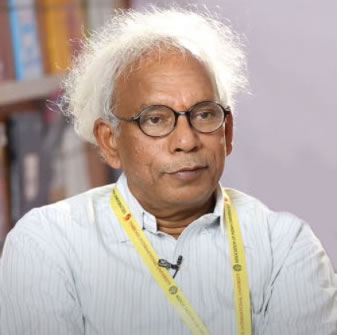Reimagining higher education and research
 Prof. Jandhyala B.G. Tilak [Former Professor & Vice Chancellor, NUEPA] ICSSR National Fellow & Distinguished Professor,
Council for Social Development, India
Prof. Jandhyala B.G. Tilak [Former Professor & Vice Chancellor, NUEPA] ICSSR National Fellow & Distinguished Professor,
Council for Social Development, India
Professor Jandhyala B G Tilak, former Professor and Vice-Chancellor of India’s National University of Educational Planning & Administration, believes that through reimagining higher education and research in the midst of the COVID-19 pandemic, some much-needed changes can be made and some dangerous pitfalls avoided.
Professor Tilak began his keynote presentation to the conference by outlining where we are now and how we got here. He cited the World Bank’s estimate that higher education institutions in 175 countries closed in response to coronavirus outbreaks, destabilising all their activities.
While some feel that the subsequent switch to online methods of instruction improved overall access, many argue they’ve exacerbated the existing inequalities in access to higher education. Research and publication programmes were also affected with, for example, a shift from field-based to desk-based research. Furthermore, the concentration on COVID-related medical, health and pharmaceutical research, is limiting the publication opportunities for work in non-directly-related disciplines, such as the humanities and social sciences.
Many universities and colleges have reopened for the new academic year, with social distancing and other health measures in place. "But we've seen a fall in student attendance," Professor Tilak noted, “and webinars with limited interactions and no animated discussions."
In the long term, the pandemic may continue to depress enrolment rates due to rising levels of unemployment, a fall in household incomes and a drop in the number of international students. Similarly, national belt-tightening is likely to affect public funding for universities and colleges. "The overall effect is that global education will shrink," Professor Tilak fears.
Though a move to virtual learning may increase the inequitable effects of the digital divide, raise concerns about security and privacy, and cause some ‘de-professionalisation’ of academic labour, EdTech is surely here to stay, he believes. Increased access to online platforms and virtual spaces does have the potential to boost inclusiveness, make higher education and research programmes more cost-efficient, improve assessment systems, allow the best balance for blended learning to be discovered, and be more environmental friendly.
Given that higher education is going to be key in building a better post-COVID society, the time was ripe for developing a long-term vision, Professor Tilak said. Universities had to reposition themselves as stronger and more visible drivers and agents of change. They should have plans in place to handle future unforeseen crises. And, in all parts of the world, investment in public education needed to be prioritised, possibly with the encouragement of public-private partnerships.
He ended by citing the World Bank report, by way of warning. "A failure to sustain effective tertiary systems can lead to perilous social upheavals, as youth fall outside the education system, unable to engage in active learning and uncertain about the future of their education and prospects."